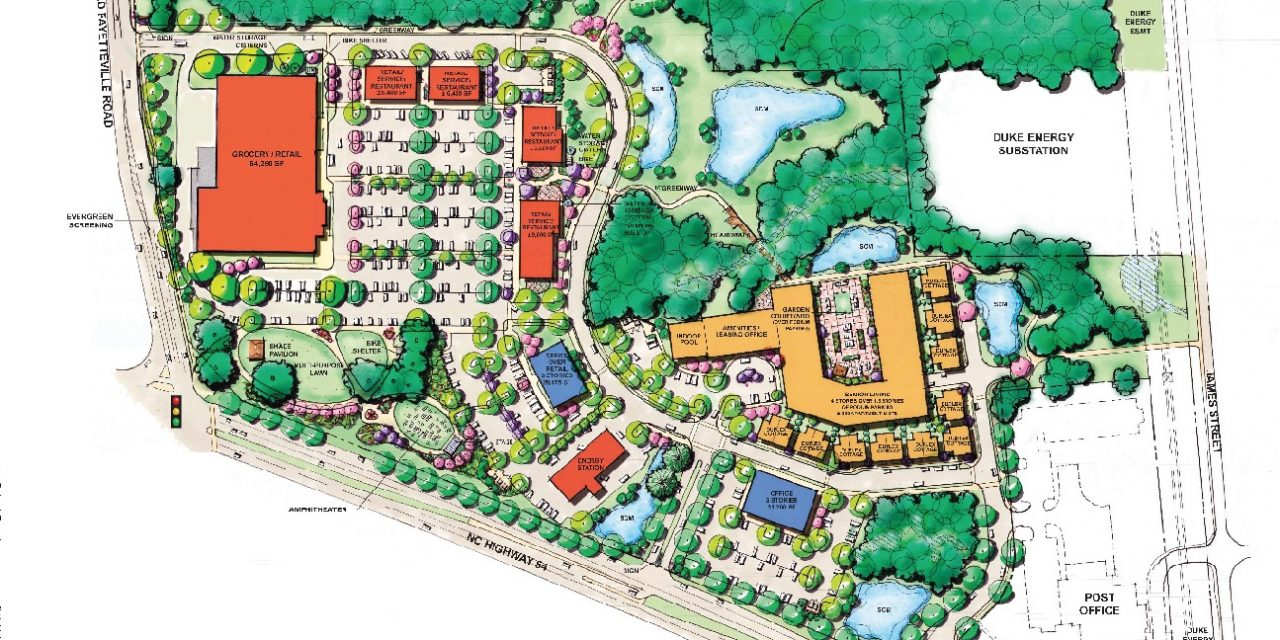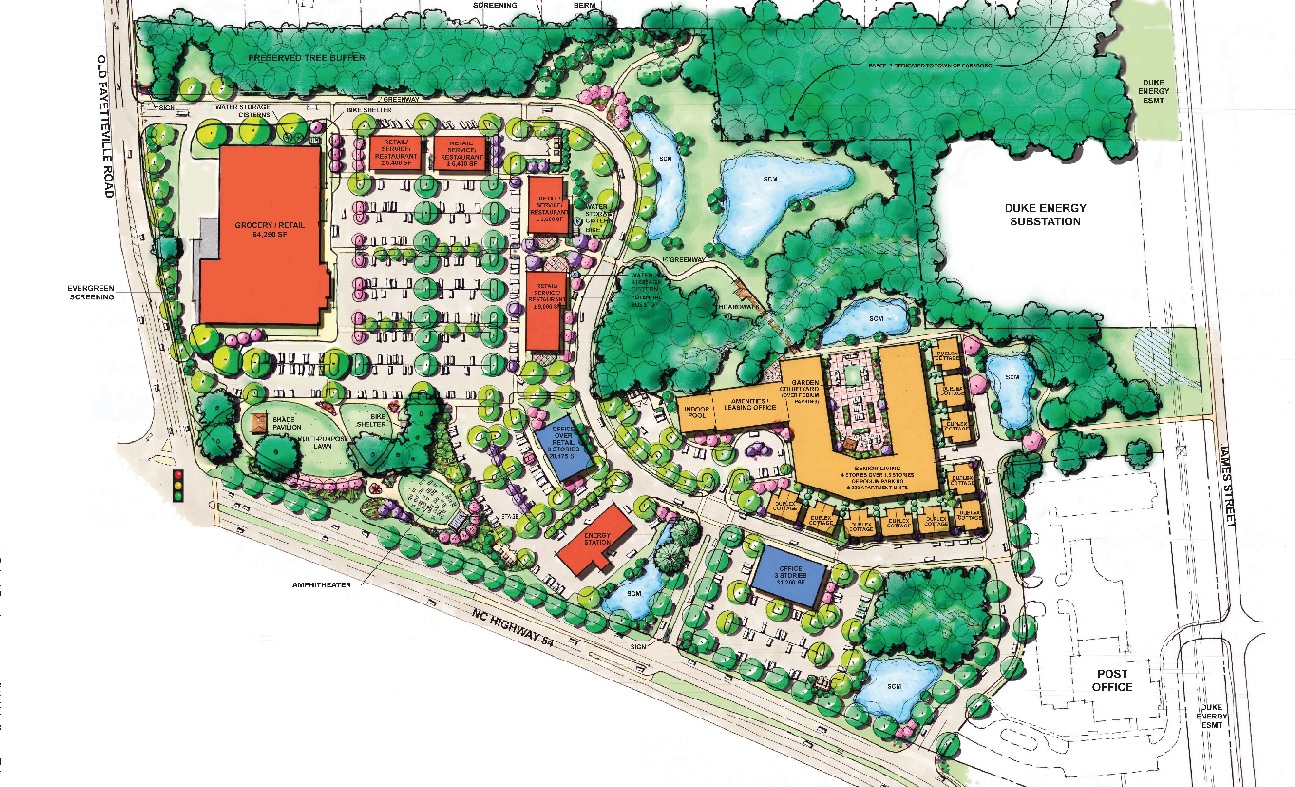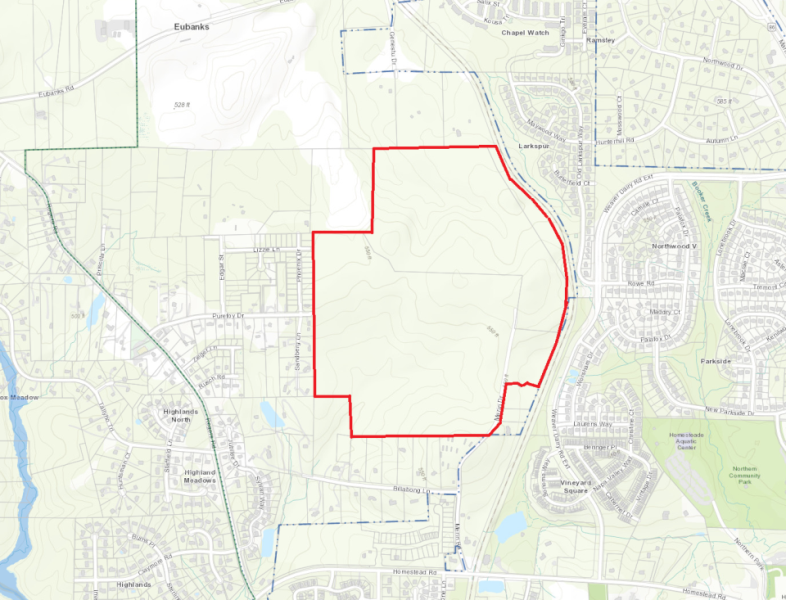The Carrboro Board of Aldermen voted 5-2 Tuesday night to rezone the roughly 35.5-acre Lloyd Farm property. The vote came nearly two years after an initial development plan for the site failed by the same 5-2 margin.
The vote Tuesday night was the culmination of nearly four hours of discussion among town staff, the developer and the board.
After the initial plan was voted down in December 2016, a revised version was brought to the town earlier this year and a public hearing was held last month. The new plan shared some similarities with its first iteration. The proposal still calls for a grocery store-anchored development with buildings for office space, retail and restaurants. There is a residential portion of the development dedicated to residents 55 years old and older.
Concerns some neighbors and board members had from the first version of the project carried over to its second form, mainly stormwater and traffic. The developer is exceeding current stormwater guidelines put forward in the town’s ordinance by planning for a 100-year flood, which has a one percent chance of occurring each year, rather than the 25-year flood standard. The developer will also have to perform a new traffic study.
Several board members called Tuesday night’s decision the hardest of their political careers. The vote seemed to swing on the votes of Randee Haven-O’Donnell and Jacquie Gist to approve of the rezoning; both voted against initial plan. Rather than approval of this proposal, both indicated Tuesday night’s vote was the best way to keep the voice of the neighbors involved moving forward.
If the rezoning had been denied, the aldermen said, the property could be developed under the current zoning, which would have led to residential development creeping toward homes in the adjacent neighborhoods and would still call for a grocery store on the overall property.
Under the redevelopment proposal, roughly 4.5 acres of the property would be donated to the town. Discussion of the future of this property was one of the most contentious points of the night.
Gist and Haven-O’Donnell indicated they felt the donated property should be left undeveloped or used strictly for open space. But other board members said it was inappropriate to restrict the property from other future uses without going through a period studying the options and allowing for public input.
Board member Bethany Chaney said that this project was needed to help limit future tax increases for residents. In order to replicate the future tax contribution the developed site is expected to bring in, Chaney said the town would have to build four more Carr Mill Malls or 3.5 additional Hampton Inn hotels. All of those options, Chaney said, would require developable land the town does not have.
Sammy Slade and Damon Seils were the two votes against the rezoning. Seils called the site a “missed opportunity” and has advocated for a project that would call for increased density rather than the more suburban plans put forward. Slade echoed many of those concerns and said the by-right plan had the potential to exacerbate flooding on adjacent neighborhoods more than the current development plan.
With Tuesday’s vote, the developer can now put forward a more-detailed conditional use permit. Ted Barnes with Argus Development told the board Tuesday night that the process to submit that permit would begin with a hope for its approval by the end of next year. If approved, construction could begin in 2020 with the possibility of the first building opening on the property in the middle of 2022.





